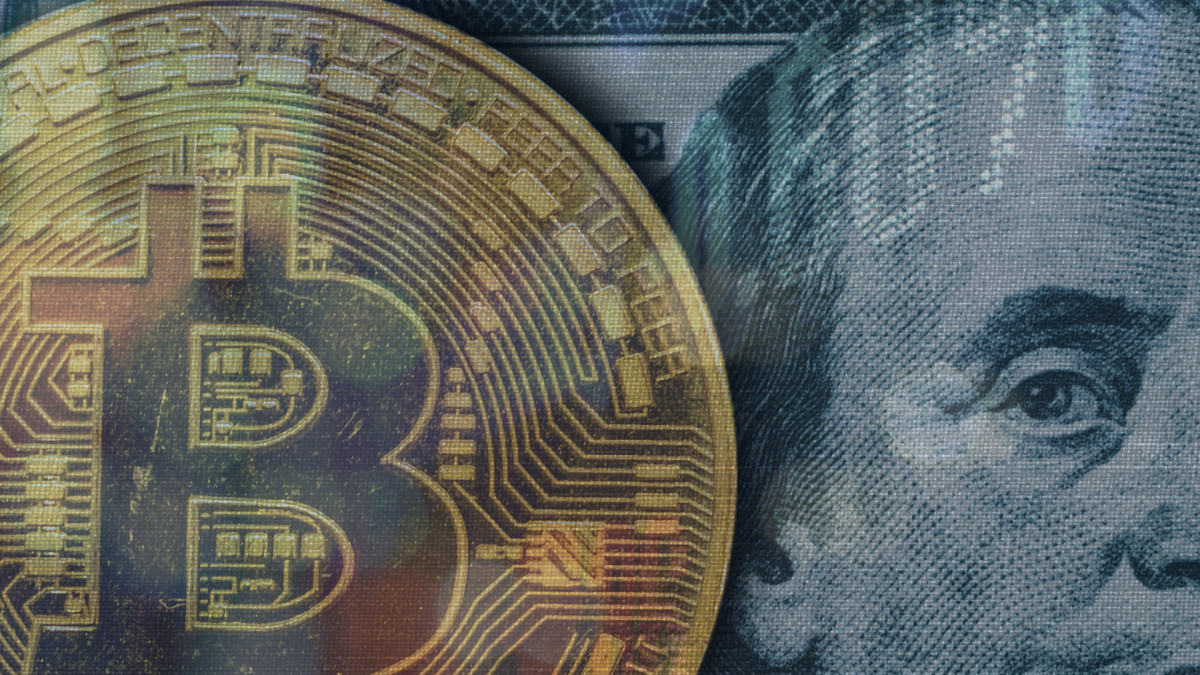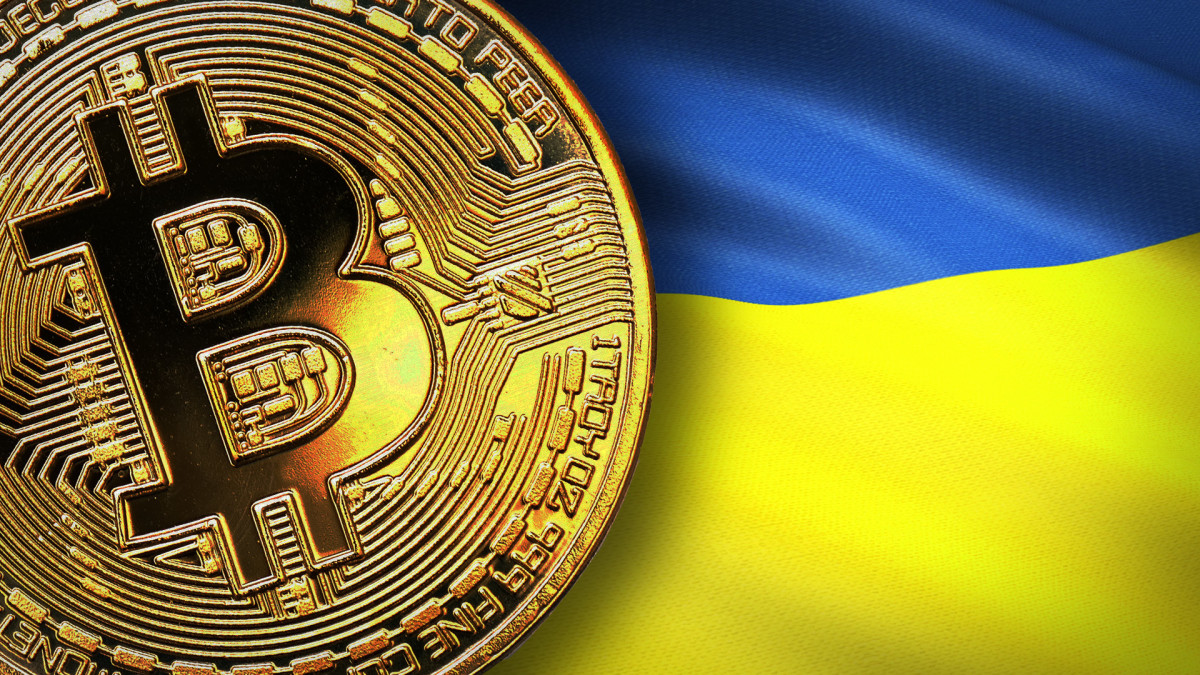tml-version=”2″
The best defense is attack, said Napoleon Bonaparte. When a fighter is under attack, they must parry and avoid blows. And as soon as they feel their strength returning and sense that their opponent is tiring, they can go on the offensive.
This appears to be the strategy that the evangelists, millionaires and billionaires of bitcoin and alt coins are now deploying.
After spending weeks taking flak from cryptocurrency skeptics and naysayers amid a market rout, advocates and proponents of this young industry in recent days have been rewriting the narrative.
An unfortunate coincidence brought about this dynamic. On Feb. 24 Russia invaded Ukraine, and in just two weeks that war has caused numerous losses of human life, displaced millions of others and caused unmeasurable property damage.
The United States, the European Union, the United Kingdom, Canada and their allies imposed economic and financial sanctions designed to suffocate the Russian economy.
Donations
Some Russian banks have been excluded from the Swift network, the secure messaging system used by financial institutions, brokers, and investment firms. Swift enables more than 11,000 banks to send instructions to other financial institutions, which then enable those banks to transfer funds across borders.
With those banks’ exclusion from Swift, the Russian ruble collapsed.
An outpouring of global solidarity toward the Ukrainians arose. Donations came from everywhere, but for the first time in a war, these generous donations were often made in cryptocurrencies. That’s because the Ukrainian authorities themselves called for contributions in digital currencies by opening accounts whose addresses were communicated on government social-media accounts.
“Stand with the people of Ukraine,” Ukrainian officials posted on Feb. 26. “Now accepting cryptocurrency donations. Bitcoin, Ethereum and USDT.”
The Ukrainian government a few days later expanded the list of cryptocurrencies it would accept.
To date, some $60.5 million in cryptocurrency has already been sent to the Ukrainian government and nonprofits, according to blockchain firm Elliptic.
It was enough for the crypto sphere to present itself in a new light.
 disableImageMeta is needed to prevent duplicate rendering of the image meta. Duplicate rendering can occur because we have moved the image metadata outside of the .m-detail-header–container. The original image metadata in tmlImage is needed for the InContent detail header which renders when the media size is inline or breakout.
disableImageMeta is needed to prevent duplicate rendering of the image meta. Duplicate rendering can occur because we have moved the image metadata outside of the .m-detail-header–container. The original image metadata in tmlImage is needed for the InContent detail header which renders when the media size is inline or breakout.New Bitcoin, New Crypto
Building on this unprecedented mobilization to portray bitcoin and cryptocurrencies in a new light and a new face has become the central effort of crypto evangelists.
“If you don’t fear inflation, regulation, war, famine, complexity, competition, corruption, coercion, confiscation, or chaos, then you don’t need #bitcoin,” posted billionaire Michael Saylor to his 2.2 million followers on Twitter.
MicroStrategy (MSTR) – Get MicroStrategy Incorporated Class A Report, Saylor’s technology company, is one of the few established companies to have invested in bitcoin. Tesla (TSLA) – Get Tesla Inc Report, the electric vehicle manufacturer led by Elon Musk, is another champion of cryptocurrencies, in particular of meme coin dogecoin.
Bitcoin influencer and investor Anthony Pompliano sums up the history of the most popular digital currency in one sentence, as if there were no declines – and there have been many.
“It took 13 years for bitcoin to go from invention to an essential tool in the defense of the sovereignty of a nation state during wartime.”
“Incredible,” he added to the post sent to his 1.5 million followers.
Cryptocurrency evangelists have thus managed to spread and inculcate the idea that they are essential and that their use must be widespread. The tactic aims to debunk the idea that cryptocurrencies are essentially a speculative tool, a means to launder money, enable criminals to do business more broadly, and circumvent sanctions.
“#Bitcoin has hit an all-time high when priced in Russian rubles,” posted Dan Morehead, chief executive of Pantera Capital, an investment firm that invests in bitcoin, ethereum, other cryptocurrencies and decentralized finance, or DeFi. “Bitcoin’s utility is most apparent when it is most needed.”
“#Bitcoin being used to buy night vision goggles in Ukraine,” Bitcoin Magazine, the industry bible summed up.
Russia’s invasion of Ukraine is a pivotal moment in the history of cryptocurrencies, advocates say. They hammer at the benefits of digital currencies because the general public is now seeing how it they can be useful.
“@Ukraine called early for support using crypto, and the community responded,” wrote on March 8 young billionaire Sam Bankman-Fried, founder and CEO of cryptocurrency exchange FTX.
 disableImageMeta is needed to prevent duplicate rendering of the image meta. Duplicate rendering can occur because we have moved the image metadata outside of the .m-detail-header–container. The original image metadata in tmlImage is needed for the InContent detail header which renders when the media size is inline or breakout.
disableImageMeta is needed to prevent duplicate rendering of the image meta. Duplicate rendering can occur because we have moved the image metadata outside of the .m-detail-header–container. The original image metadata in tmlImage is needed for the InContent detail header which renders when the media size is inline or breakout.Shutterstock/TS
Regulation Is Welcome
This new narrative to reintroduce bitcoin and cryptocurrencies to the mainstream seems to be working since it has managed to make people forget that prices remain well below their highest levels reached in November.
Bitcoin’s price recently was down 39% from its all-time high of $69,044.77 reached on Nov. 10. The cryptocurrency market as a whole is valued at $1.9 trillion, down from $3.03 trillion on Nov. 9.
And to continue to etch “bitcoin and the new cryptos” in the minds of the general public, the crypto sphere seems to welcome the regulation of the industry that is looming in the United States. It was unthinkable a few months ago to see the big names in the sector speak well of regulation.
President Joe Biden will formalize an executive order requiring federal regulators to review the risks of cryptocurrencies for consumers, investors and the broad economy. This report will enable regulators to develop rules and protective actions.
“Today, @POTUS signed an Executive Order on crypto-assets. I look forward to collaborating with colleagues across the government to achieve important public policy goals: protecting investors & consumers, guarding against illicit activity, & helping ensure financial stability,” Gary Gensler, chairman of the Securities and Exchange Commission, tweeted.
To which Bankman-Fried replied:
“A constructive EO to discuss customer protection and economic competitiveness in digital assets.”
“I applaud this constructive approach to thoughful crypto regulation and look forward to working together with the various stakeholders to ensure that the US remains a leader in crypto,” tweeted Cameron Winklevoss, who founded crypto exchange Gemini with his brother Tyler.
Coinbase (COIN) , the most popular crypto exchange in the U.S, has shown its credentials to the authorities by blocking 25,000 addresses belonging to Russian individuals and entities — even though the sanctions do not affect cryptocurrencies.
Binance, the other major crypto exchange, has already indicated that it will comply with the sanctions as soon as they are announced.
“We are not going to unilaterally freeze millions of innocent users’ accounts,” Binance CEO Changpeng Zhao wrote in a blog post. “Of course, if governments introduce new sanctions that include off-boarding users then we will apply those aggressively as well.”
